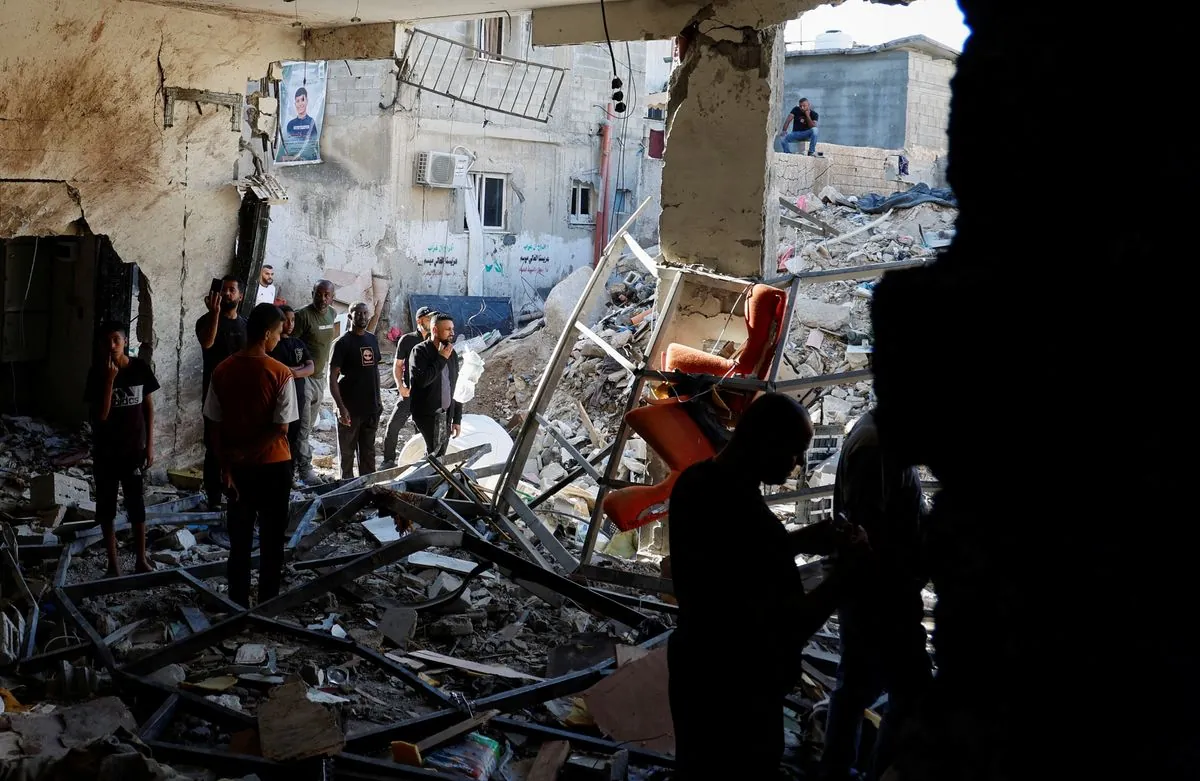In a significant escalation of violence in the West Bank, an Israeli airstrike in the city of Tulkarm resulted in the deaths of 18 Palestinians, including a senior Hamas commander and civilians. The incident, which occurred in the densely populated Noor Shams refugee camp, has heightened tensions in the region and underscored the expanding impact of the ongoing Gaza conflict.
The airstrike targeted a coffee shop, completely destroying the ground floor of the building. Among the casualties was a family of five residing in an apartment above the shop. The attack marks one of the most severe incidents in the West Bank since the Second Intifada, a period of intensified Israeli-Palestinian violence from 2000 to 2005.
Nimer Fayyad, the owner of the targeted cafe, expressed shock at the scale of the attack, stating, "We haven't heard this sound since 2002." The strike's intensity reflects the escalating military operations in the northern West Bank, particularly in volatile cities like Tulkarm and Jenin.
The Israeli military confirmed that the airstrike killed Zahi Yaser Abd al-Razeq Oufi, identified as the head of the Hamas network in Tulkarm. They described the operation as part of ongoing counterterrorism activities in the area since the start of the Gaza war approximately one year ago.
The West Bank, home to approximately 3 million Palestinians, has been under Israeli occupation since 1967. The region has seen a sharp increase in violence over the past year, with more than 700 Palestinian fatalities, including both armed fighters and unarmed civilians. Concurrently, dozens of Israeli soldiers and civilians have lost their lives in attacks by Palestinians.
This recent escalation occurs against the backdrop of the broader Israeli-Palestinian conflict. The West Bank, governed by the Palestinian Authority, has limited self-governance under the terms of the Oslo Accords signed in the 1990s. However, the presence of Israeli settlements, considered illegal under international law, remains a significant point of contention.
The impact of the ongoing conflict extends beyond immediate casualties. Tulkarm's economy, primarily based on agriculture and light industry, faces significant challenges due to the unstable security situation. Additionally, the West Bank's water resources continue to be a contentious issue between Israelis and Palestinians.
As tensions rise, the international community watches closely. The United Nations considers the West Bank occupied Palestinian territory, and the recent violence may further complicate efforts towards a peaceful resolution to the long-standing conflict.
"What's happening in Gaza is spreading to Tulkarm, with the targeting of civilians, children, women and elders," said Faisal Salam, head of the camp refugee council.
The situation in Tulkarm serves as a stark reminder of the complex and volatile nature of the Israeli-Palestinian conflict. As both sides grapple with the aftermath of this latest incident, the path to peace remains fraught with challenges, underscoring the urgent need for renewed diplomatic efforts to address the root causes of the ongoing violence.
